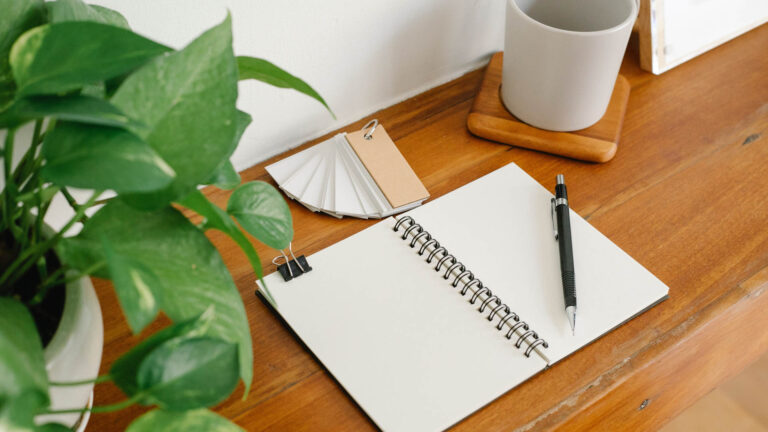A panel interview is a type of job interview where the candidate meets with multiple interviewers at the same time.
During a panel interview, a group of two or more interviewers will ask the candidate questions to assess their suitability for the job. Panel interviews can take place in-person, over the phone, or via video conference.
Why Do Employers Use Panel Interviews?
Employers use panel interviews for various reasons, including:
- Efficiency: Panel interviews save time and resources by having all interviewers in the same room or on the same call.
- Consistency: Each interviewer can ask their own questions, but all candidates are evaluated against the same criteria.
- Collaboration: Panel interviews enable different perspectives and opinions to be considered during the hiring decision.
- Comprehensive assessment: Employers can evaluate the candidate’s skills, experience, and fit within the team and company culture.
What to Expect: Overview of a Panel Interview
In a panel interview, expect to meet with two or more interviewers who may be from different departments or levels of management. The interview may last between 30 minutes to an hour, depending on the employer’s hiring process.
During the interview, each interviewer may ask questions related to different aspects of the job, such as technical skills, industry knowledge, and behavioral competencies. It is essential to listen carefully and answer each question concisely and honestly while maintaining eye contact with the panel.
It is also common for the interviewers to take notes or rate the candidate’s responses during the interview. After the interview, the employer may provide feedback on the outcome or inform the candidate about the next steps in the hiring process.
Preparing for a panel interview requires research on the company and job requirements, as well as practicing interview questions and communication skills. By understanding what to expect, candidates can approach panel interviews confidently and showcase their qualifications effectively.
Preparing for a Panel Interview
When it comes to a panel interview, it’s important to make sure you’re well-prepared. Here are four steps you can take to ensure you’re ready for whatever may come your way.
A. Research the Company
One of the most important things you can do prior to a panel interview is to research the company you’re interviewing with. This will help you understand the company culture, the products or services they offer, and any current news or updates that might be relevant to the position you’re seeking.
You can start by visiting the company’s website, reading through their About Us page, and exploring their social media channels. You may also want to search for any recent articles or interviews with company representatives to gain additional insights.
B. Review the Job Description
Next, it’s important to carefully review the job description. Pay close attention to the required qualifications, duties and responsibilities, and any preferred or desired skills. Make sure you fully understand what the role entails so that you can demonstrate how your experience and abilities align with the position.
C. Prepare Your Answers to Common Questions
Panel interviews can be particularly challenging because you’re likely to face a variety of questions from multiple interviewers. To help alleviate some of the anxiety, prepare yourself by practicing common interview questions in advance.
Think about questions that you might be asked specifically about the company, the job, or your work experience. Additionally, make sure you have strong answers prepared for the common behavioral-based interview questions that come up in most interviews.
D. Choose the Right Outfit
Finally, it’s important to choose the right outfit for your panel interview. The goal here is to dress professionally and appropriately for the company and the position you’re seeking. You want to make a good impression, but you also don’t want to overdress or underdress.
If you’re not sure what to wear, take cues from the company culture and dress code. If you have any doubts or questions, it’s always better to err on the side of caution and dress more conservatively. After all, you want the interviewers to focus on your skills, experience, and qualifications – not on what you’re wearing.
By following these four steps to prepare for your panel interview, you’ll be well-equipped to handle whatever comes your way. Remember to stay calm, confident, and authentic, and you’re sure to make a great impression on your interviewers.
Techniques for Navigating a Panel Interview
When preparing for a panel interview, it’s important to know how to handle the interaction with multiple interviewers. The following techniques can help you navigate a panel interview with confidence:
A. Introduce Yourself
Start the interview on the right foot by introducing yourself confidently and concisely. Be sure to mention your name, what position you’re interviewing for, and thank the panel for having you.
B. Address Each Panel Member
During the interview, it’s important to make a connection with each panel member. Address them directly by their name or position, and make eye contact with each of them. This shows that you value their input and that you’re interested in building a relationship with each of them.
C. Answer Questions Directly
In a panel interview, it’s common to receive multiple questions from different panel members. When answering, make sure you’re addressing the person who asked the question directly. Speak clearly and concisely, and focus on each question as it comes. You’ll want to include relevant information while staying on topic and within the time limit.
D. Ask Questions of the Panel
Asking questions of the panel is a great way to show that you’re curious and interested in the company and the position. Not only does this show that you’ve done your research, but it also helps you get a better understanding of the organization and the people you’ll be working with. When asking questions, make sure they are meaningful and thoughtful. Try to ask each panel member at least one question to show that you value their perspective.
Navigating a panel interview can be challenging. By using these techniques, you can showcase your expertise and confidently present yourself to the panel. With a little preparation and a lot of confidence, you can ace your panel interview and land the job you’ve been hoping for.
Best Practices for Overall Performance
During a panel interview, it is essential to maintain a professional demeanor by following some best practices to enhance your overall performance.
A. Maintain Eye Contact
One crucial practice is to maintain eye contact throughout the interview. Maintaining eye contact demonstrates your interest and engagement in the conversation, and it also conveys your confidence and professionalism. When you are addressing the panel, aim to make eye contact with every member of the board to show your respect and interest in everyone’s input.
B. Practice Active Listening
Another important best practice is to practice active listening. Listen carefully to what the panelists are saying and respond thoughtfully to each question. Avoid interrupting the interviewer, and wait for them to finish before responding. It helps to take notes to enable you to address all the important points raised during the interview.
C. Be Confident
Confidence is key to performing well in a panel interview. Maintain a natural and comfortable posture, avoid fidgeting or nervous gestures, and speak clearly, calmly, and confidently. When responding to interview questions, back up your answers with examples from your previous experience or qualifications. This will show the panel that you are both confident and competent.
D. Avoid Negative Language
During a panel interview, it is essential to maintain a positive attitude even when discussing difficult or negative topics. Avoid criticizing former employers or colleagues, and instead focus on what you learned from challenging situations. Use positive language to describe your strengths and unique qualities, as this will make a more lasting impression on the interview panel.
By maintaining eye contact, practicing active listening, being confident, and avoiding negative language, you can enhance your overall performance during a panel interview. Remember to prepare ahead of time and understand the company’s values and culture. By following these best practices, you can make a great first impression and improve your chances of landing the job.
Common Panel Interview Questions
When preparing for a panel interview, it’s important to know what types of questions you may face during the process. Panel interviews typically involve several interviewers who may come from different backgrounds and job functions. As a result, the questions asked during a panel interview are designed to evaluate a candidate’s compatibility with a team, assess their experience, and determine their technical knowledge. Here are five common types of panel interview questions:
A. Behavioral Questions
Behavioral questions are geared towards assessing a candidate’s past behavior in various situations. By evaluating a candidate’s responses to these questions, the panel can gain insight into how they may react in similar circumstances within their role. Some examples of behavioral questions that may be asked during a panel interview include:
- Tell us about a time when you had to handle a difficult situation at work.
- How do you manage your workload to ensure that you meet deadlines?
- Give an example of a time when you had to work with someone you did not get along with. How did you handle the situation?
B. Experience-Based Questions
Experience-based questions are designed to evaluate a candidate’s professional experience, including specific projects or accomplishments in their past roles. These questions aim to determine if you have the experience and skills necessary to perform well in the position you are interviewing for. Some examples of experience-based questions that may arise during a panel interview include:
- What relevant work experience do you have that would make you a good fit for the role?
- Can you provide an example of a project or accomplishment that you are particularly proud of in your previous role?
- How have you previously handled a similar project to the one in this role?
C. Technical Questions
Technical questions are designed to test a candidate’s knowledge of specific skills necessary for the role they are interviewing for. They can range from basic knowledge questions to more in-depth technical questions depending on the position applied for. Here are some examples of technical questions that may arise during a panel interview:
- What programming languages are you proficient in?
- Can you explain what steps you would take to troubleshoot a particular issue in your role?
- How would you approach building a particular feature of the software?
D. Culture Fit Questions
Culture fit questions are designed to assess how well a candidate will integrate with the existing team and company culture. These questions can involve assessing how you may react to hypothetical situations within the role and the company culture in general. Some examples of culture fit questions that may arise during a panel interview include:
- Can you describe the company culture at your previous employer and how you fit in?
- What values do you prioritize in your work and why?
- Can you give an example of how you resolved a conflict with a coworker in the past?
E. Questions for the Panel
Lastly, candidates should be prepared to ask questions to the panel.
Tips for Impressing Every Member of the Panel
When preparing for a panel interview, it’s important to remember that you’re not just trying to impress one person. You’re trying to make a connection with every member of the panel. This can seem overwhelming, but it’s crucial to your success.
A. Make a Connection with Each Person
To make a connection with each person on the panel, take the time to research their backgrounds and roles within the organization. This can help you understand their perspectives and tailor your responses accordingly. Additionally, try to find common ground with each person – this could be anything from shared interests to a similar career path.
During the interview, make eye contact with each person and engage with them individually as much as possible. Ask follow-up questions and show genuine interest in their responses. This will help you establish rapport with each person and make a lasting impression.
B. Showcase Your Unique Skills
One of the key goals of a panel interview is to demonstrate your unique skills and qualifications for the role. Be sure to highlight any relevant experience you have, as well as any specific skills or abilities that set you apart from other candidates.
To showcase your skills effectively, be prepared to provide concrete examples of how you’ve been successful in the past. Use specific metrics and outcomes to demonstrate the impact you’ve had in previous roles, and be sure to tie these successes back to the job you’re applying for.
C. Demonstrate Enthusiasm for the Role and Company
Finally, it’s important to demonstrate enthusiasm for both the role and the company. Show that you’ve done your research on the organization and are genuinely excited about the opportunity to work there.
To demonstrate your enthusiasm, be sure to ask thoughtful questions about the company and the role. Talk about specific aspects of the organization’s mission or culture that resonate with you, and explain how you could contribute to those goals.
A panel interview can be a daunting experience – but with the right preparation and strategy, you can impress every member of the panel and land the job of your dreams.
Frequently Asked Questions About Panel Interviews
Panel interviews can be an intimidating process for many job seekers. They can take you out of your comfort zone by having to interact with multiple interviewers at once. However, preparing beforehand by familiarizing yourself with common questions and procedures can help alleviate some of the stress.
Here are four frequently asked questions about panel interviews and their answers:
A. What Should I Do if I Don’t Know the Answer to a Question?
It’s natural to feel nervous or unsure about answering a question during an interview, especially in a panel setting where multiple interviewers are present. If you are ever unsure about how to answer a question, it’s important to remain calm and composed. Take a few deep breaths and ask the interviewer to repeat the question or clarify their expectations.
If you still do not have an answer after receiving more information, it’s okay to admit that you do not know the answer. It’s better to be honest than to try to bluff your way through an answer, as this can quickly be noticed by the interviewers.
One way to mitigate the risk of not knowing how to answer a question is to prepare for the interview by researching the company, industry, and job position beforehand. This way, you’ll be better equipped to provide thoughtful and relevant answers.
B. How Long Do Panel Interviews Typically Last?
Panel interviews can vary in length depending on the number of interviewers and the scope of the interview. Generally, panel interviews last anywhere from 30 minutes to an hour.
According to some sources, panel interviews can be longer than traditional interviews because the interviewers have more time to ask in-depth questions and gather a more comprehensive understanding of the candidate’s qualifications.
However, as a job seeker, it’s important to prepare for a longer interview in terms of mental and physical stamina. Take breaks and make sure to stay hydrated to alleviate any anxiety or fatigue.
C. Who Asks the Questions During a Panel Interview?
Panel interviews can involve a group of interviewers, usually from different departments or areas of the company, all asking questions to test the candidate’s qualifications and fit for the job.
Typically, the hiring manager or the person leading the interview panel will begin with an introduction and then ask the first question. After that, the other panelists will ask their questions, making sure to cover different aspects of the candidate’s experience, knowledge, and skills.
However, it’s important to note that each panel interview may have a unique approach to how they ask questions, so it’s essential to gauge the panel dynamic and adjust your approach accordingly.
D. What Should I Do After the Interview?
After a panel interview, it’s important to follow up with the interviewers to thank them for their time and reiterate your interest in the position. Depending on the situation, you may also want to follow up with any additional materials, such as references, writing samples, or thank you notes.
Example Responses to Common Questions
Panel interviews can be daunting, but being prepared can alleviate some of the stress. Panel interviews are often comprised of a mix of behavioral, experience-based, technical, and culture fit questions. Below are examples of how to answer some of the most common questions asked during a panel interview.
A. Behavioral Question Example Responses
- Tell me about a time when you had to handle a difficult client.
- I had a client who was dissatisfied with the product we delivered. I scheduled a meeting with them to discuss their concerns and actively listened to their feedback. We were able to come up with a solution that satisfied both the client and our team.
- Describe a situation where you had to work with a difficult coworker.
- I worked with a coworker who had different communication styles than me. I scheduled a meeting with them to discuss how we could better communicate with each other. We were able to establish a communication plan that worked for both of us.
- Tell me about a time when you faced a challenge or failure.
- I was working on a project and hit a roadblock. Instead of giving up, I reached out to a mentor for guidance. With their help, I was able to find a solution and complete the project on time.
B. Experience-Based Question Example Responses
- What experience makes you the most qualified for this position?
- I have several years of experience in a similar role, where I was responsible for managing large teams and implementing new processes. This experience has prepared me for the challenges that come with this position.
- What is the biggest achievement of your career so far?
- One of my biggest achievements was implementing a new project management system that increased efficiency by 30%. This was a significant achievement and helped our team to meet tight deadlines and exceed client expectations.
- What skills do you possess that make you the ideal candidate for this position?
- I possess excellent communication skills, strong leadership qualities, and a deep understanding of project management. These skills have helped me to successfully manage projects and teams, and I believe they make me the ideal candidate for this position.
C. Technical Question Example Responses
- Can you walk us through your experience with [specific software]?
- I have several years of experience working with [specific software], and I am confident in my ability to use all of its features. In my current role, I have used [specific feature] to [describe specific project or accomplishment].
- How would you troubleshoot a specific technical issue [related to the position]?
- If I encountered a specific technical issue, I would first consult the documentation for the software or tool. If that did not provide a solution, I would reach out to the vendor’s support team.



